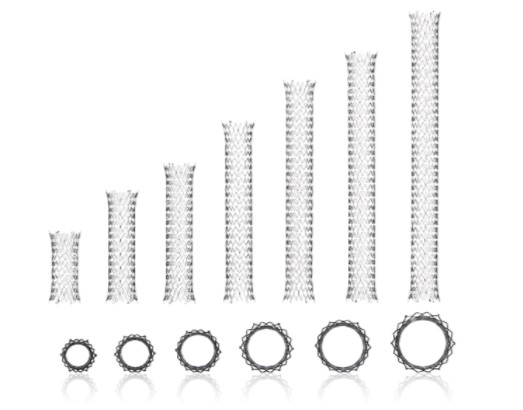The Venovo™ Venous Stent System was studied in the global VERNACULAR clinical trial, which was a prospective, multi-center, non-randomized, single-arm study of 170 patients. The primary effectiveness endpoint of the study was primary patency (PP) at 12 months post-index procedure. Patients who received a Venovo™ Venous Stent had a weighted PP rate of 88.3%, demonstrating a statistically significant difference from a literature-derived performance goal (PG) of 74%, with an 81.3% PP rate for subjects with post-thrombotic syndrome and 96.9% PP rate for subjects with non-thrombotic iliac vein lesions. The primary safety endpoint was freedom from major adverse events (MAE) through 30 days post-index procedure. Freedom from MAE was 93.5%, demonstrating a statistically significant difference from a literature-derived PG of 89%. Secondary endpoints included acute technical success, Quality of Life (QoL) assessment, Venous Clinical Severity (VCSS – Pain score) and stent fractures. Results demonstrated 100% acute technical success, defined as successful deployment of stent(s) to intended target with adequate lesion coverage as assessed by the Investigator at the time of the index procedure. In the 12-month follow-up, the CIVIQ-20 assessment demonstrated a change from baseline in the total study population of -15.7 with 95% confidence interval of -18.41 to -12.96 (P < .0001) and, for the VCSS Pain score, a change from baseline in the total population of -1.7 with a 95% confidence interval of -1.81 to -1.49 (P < .0001). Stents were evaluated at the 12-month follow-up for fracture analysis. An anteroposterior and lateral x-ray for each evaluated stent were sent to an independent core lab for analysis. 137 subjects’ x-rays were analyzed and no stent fractures were reported. Missing x-ray analyses were recorded as protocol deviations. VERNACULAR Clinical Study. Data on File. Bard Peripheral Vascular Inc., Tempe, AZ.
Features and Benefits
Device Documents
Questions & Answers
.jpg)
